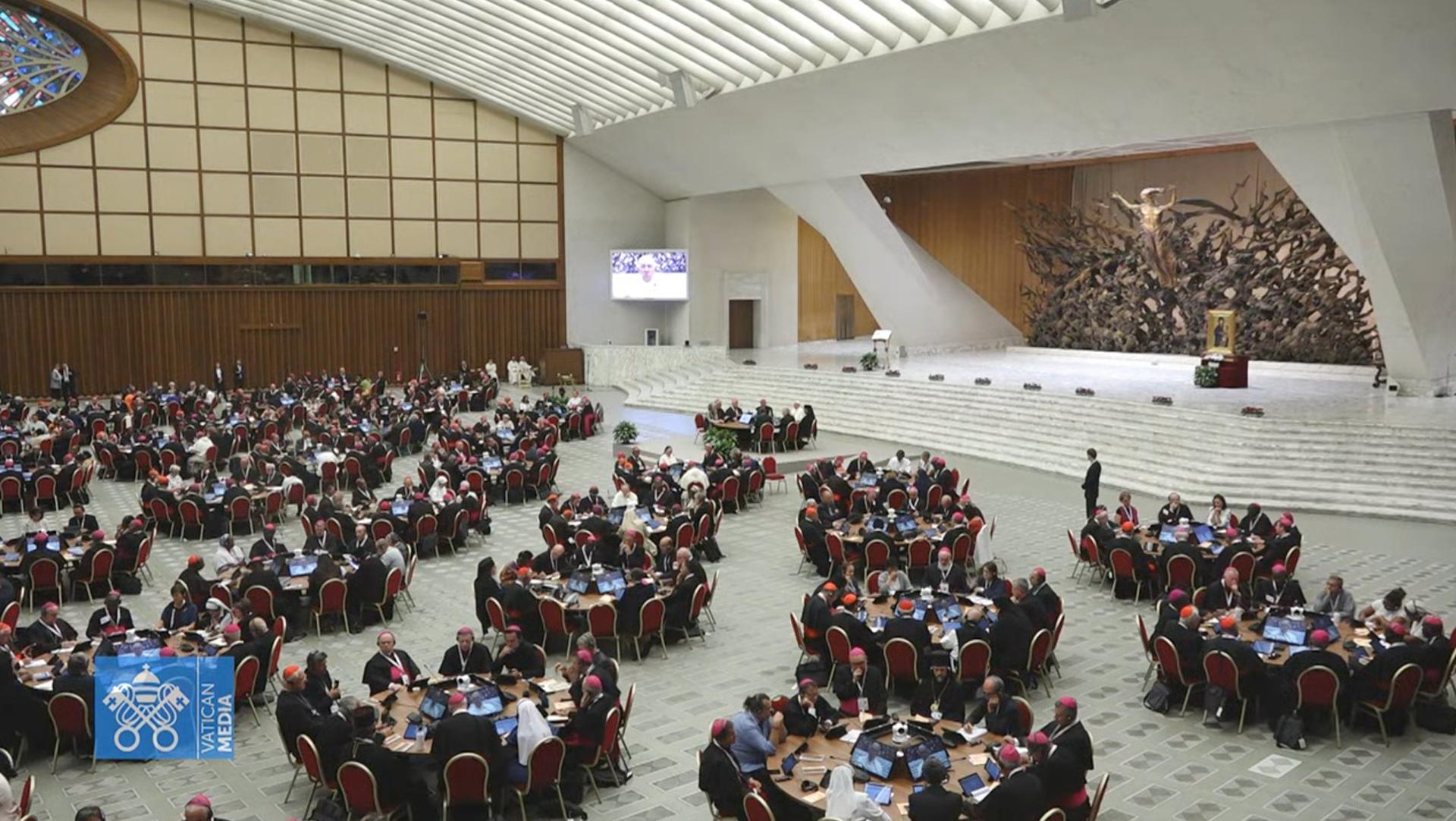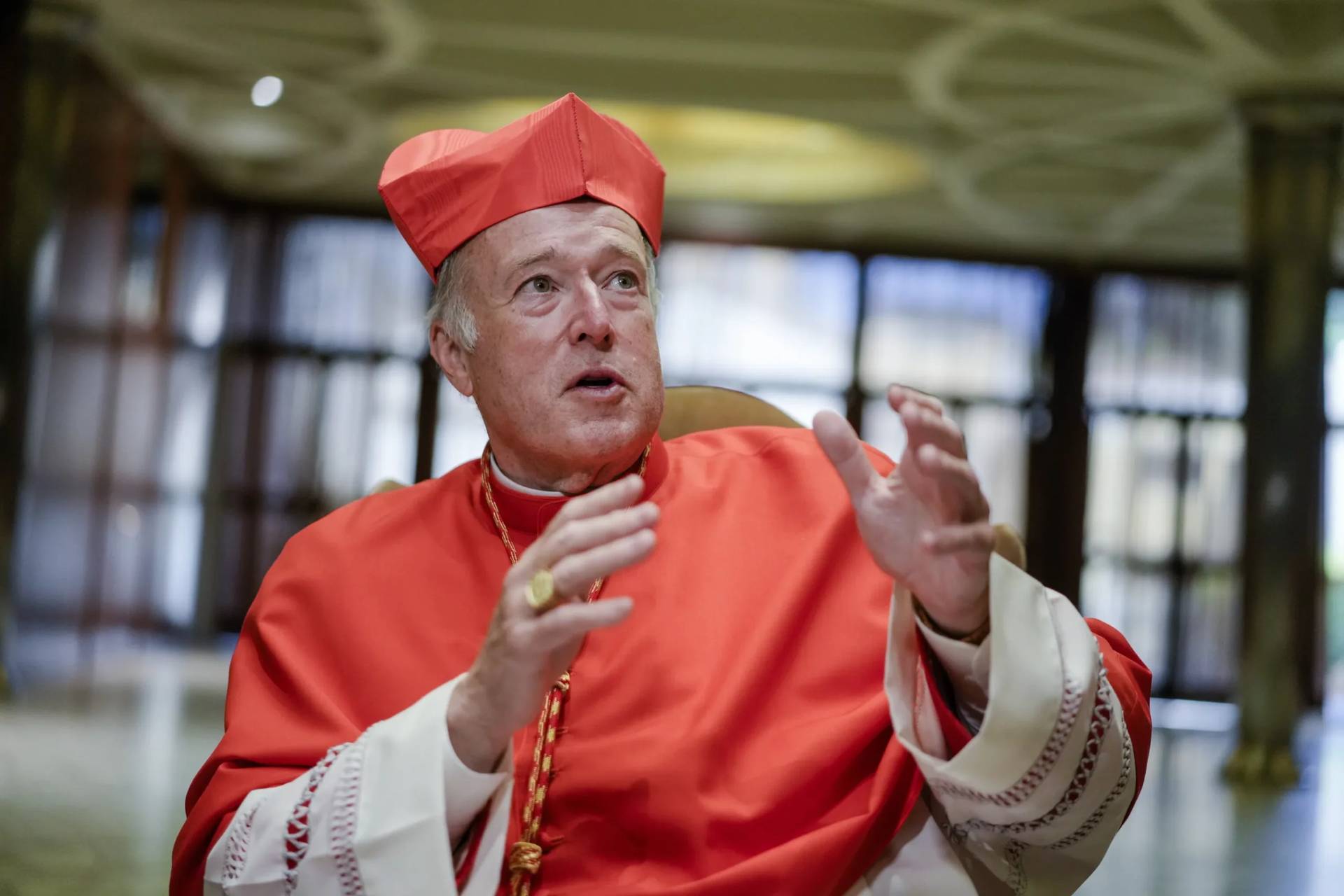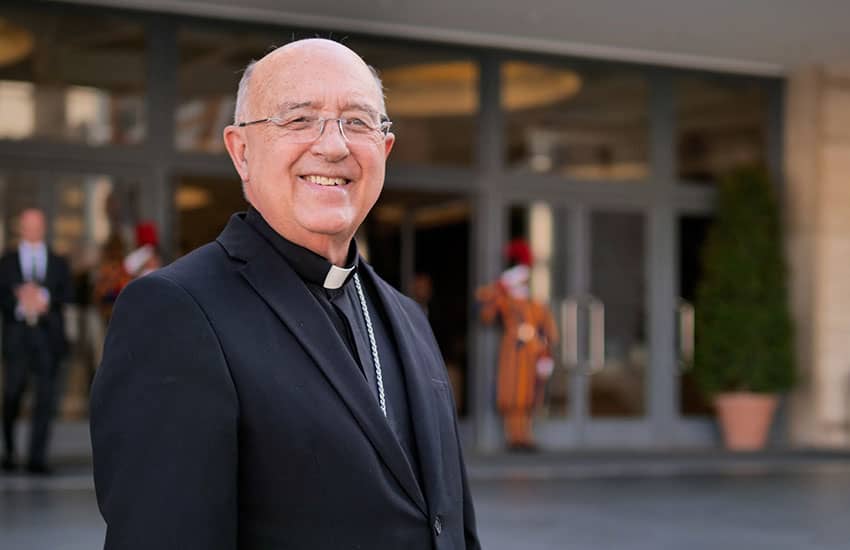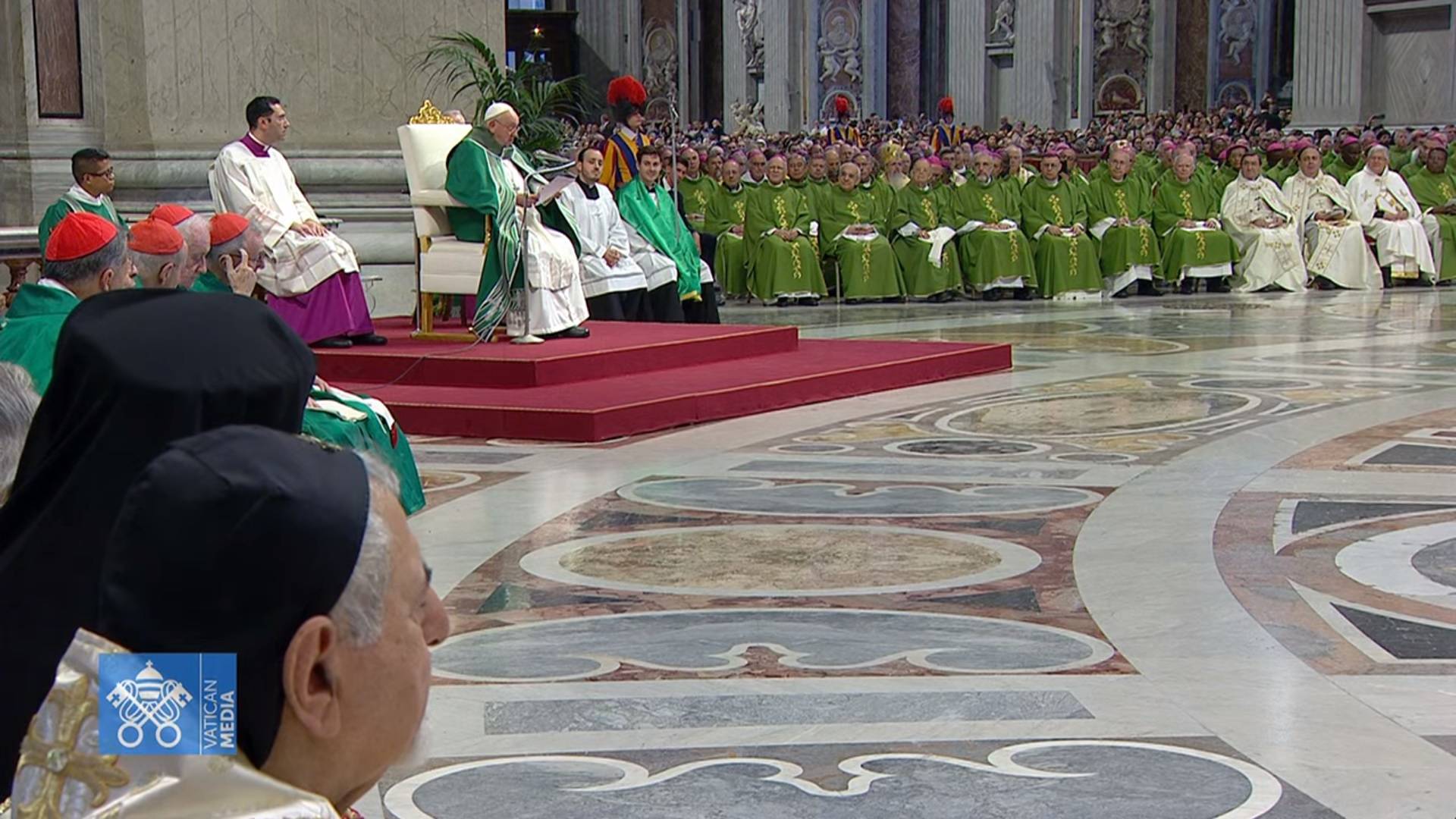ROME – In a letter addressed to the entire People of God at the close of this month’s synod discussion, participants rejected suggestions that the process has been influenced by ideology and said the contemporary Church must be better at listening and inclusion.
Published Oct. 25, the letter called the synod “an unprecedented experience,” noting that, for the first time, lay people, including women, were invited to take part not as mere observers but as full voting members.
Through “conversation in the spirit,” participants said they were able to share the “wealth and poverty” of their respective communities from every continent in order to discern “what the Holy Spirit wants to say to the Church today.”
Participants voiced hope that over the next 12 months leading up to the second synod discussion, set to take place in Rome in October 2024, the gap would allow everyone involved in the process “to concretely participate in the dynamism of missionary communion indicated by the word ‘synod.’”
“This is not about ideology, but about an experience rooted in the apostolic tradition,” they said in a remark that alludes to some allegations launched along the way that Church tradition was being tossed aside in favor of a leftist ideological agenda.
At the end of this month’s discussion, “There are multiple challenges and numerous questions,” participants said, saying a synthesis report to be published Saturday summarizing the discussion will provide more specifics on points of agreement, areas of contention, and suggestions for how to move forward.
Formally opened by Pope Francis in October 2021, the Synod of Bishops on Synodality is officially titled, “For a Synodal Church: Communion, Participation, Mission,” and is a multi-stage process that will culminate with a second Rome-based gathering in October 2024.
After an initial consultation with laypeople at the diocesan level, reports summarizing the conclusions were sent to national bishops’ conferences. Those reports served as the basis for discussion at the second, continental stage of the process.
The continental stage concluded earlier this year, and reports from each of the seven continental assemblies were used as a basis to draft the official working document, called the Istrumentum Laboris, for this October’s discussion in Rome at the universal level.
From Oct. 4-29, bishops and select delegates, including laypeople, gathered to discuss an array of issues with the aim of transforming Church structures to make them more inclusive of all of the Church’s members.
Several hot-button topics were addressed, such as the status of women and the welcome of LGBTQ+ individuals.
Women’s priestly ordination, the female diaconate, and blessings for same-sex couples were among the most contentious issues discussed, with some participants describing the engagement of these issues as “emotional,” and others claiming they were a “western obsession.”
Prior to the synod, several conservative prelates called the process “schismatic” over its engagement with these issues.
Ahead of the synod’s opening, Francis published responses to a set of dubia, or doubts, posed by five conservative cardinals about these issues in which he reaffirmed the ban on women’s priestly ordination while saying it could be studied, and opened a cautious door to the blessing of same-sex unions on a case-by-case basis, with certain caveats.
Yet despite the pope’s formal ruling on these matters, the question of women’s role in the Church and its engagement with the LGBTQ+ community were major focuses of media attention, with various outlets asking about these issues on a daily basis during afternoon press briefings.
In the letter, participants said the discussion took place “in the context of a world in crisis, whose wounds and scandalous inequalities resonated painfully in our hearts, infusing our work with a particular gravity.”
To this end, they noted that some participants come from countries currently at war, such as Ukraine and the Middle East, and offered prayers for the victims and for migrants forced to make dangerous treks to escape “misery and corruption.”
Participants stressed the importance of fostering further exchanges between the Latin and eastern Churches and, underlining the centrality of Christ to their discussion, the importance of ecumenism.
They said they also felt “the pressing call to pastoral and missionary conversion,” saying the Church’s task “is to proclaim the Gospel not by focusing on itself, but by placing itself at the service of the infinite love with which God loved the world.”
Recalling Pope Francis’s exhortation on St. Therese of Lisieux, published Oct. 15 and titled “It is Confidence,” they said trust “gives us the audacity and inner freedom that we experienced, not hesitating to freely and humbly express our convergences, differences, desires and questions.”
On the need to create a culture of inclusion within the Church, participants said that “to progress in its discernment, the Church absolutely needs to listen to everyone, starting with the poorest.”
“This requires a path of conversion…listening to those who have been denied the right to speak in society or who feel excluded, even by the Church,” they said, and pointed specifically to victims of racism “in all its forms,” especially indigenous peoples, and to victims of clerical abuse.
Synod participants said the church as a “duty” to listen to the victims and “to commit herself concretely and structurally to ensuring that this does not happen again.”
They also underlined the need to listen to the laity, men and women, including catechists, young people, and families. The Church, they said, “needs to welcome the voice of those who want to be involved in lay ministries and to participate in discernment and decision-making structures.”
To progress in synodal discernment, the Church, participants said, must “gather even more the words and experience of the ordained ministers,” including priests, “whose sacramental ministry is indispensable for the life of the whole body,” as well as deacons and those in consecrated life.
Participants said there is also a need to be attentive to those who do not share the Catholic faith, but who “are seeking truth.”
They closed quoting an address from Pope Francis during the Synod on the Family in 2015, saying, “The world in which we live, and which we are called to love and serve, even with its contradictions, demands that the Church strengthen cooperation in all areas of her mission. It is precisely this path of synodality which God expects of the Church of the third millennium.”
Participants stressed the need to be unafraid to “respond to this call,” and invoked the intersession of the Virgin Mary, who they said in both joy and in sorrow “shows us her son and invites us to trust.”
In Wednesday afternoon’s session, Pope Francis also hit back against the influence of ideology in the Church as well as clericalist attitudes he said “disfigure” the people of God.
Francis in his speech said that in the scriptures, for Jesus for the church “did not accept any of the political schemes of his time: Not the Pharisees, nor the Sadducees, nor the Zealots.”
Rather, for Jesus, the Church was “the holy faithful people of God,” Francis said, saying he refers to the faith of the people “to avoid the many ideological emphasis and expressions with which the reality of the people of God is reduced.”
He underlined what he said was the “infallibility” of the people of God, quoting the Second Vatican Council document Lumen Gentium in saying the people of God is “infallible in believing.”
“When you want to know what the Holy Mother Church believes, go to the Magisterium, because it is responsible for teaching it to you, but when you want to know how the Church believes, go to the faithful people,” he said.
Pope Francis then recounted a story in which believers gathered around the Cathedral of Ephesus asking the bishops to declare Mary as ‘Mother of God,’ saying that whether this account is true or not, the image is “valid.”
“Members of the hierarchy come from this people and we have received the faith of this people, usually from our mothers and grandmothers,” he said, and praised women as the ones who truly know “how to hope, they know how to discover the resources of the church, of the faithful people, they risk beyond limits, perhaps with fear but with courage.”
When the Church’s ministers mistreat the people of God, “they disfigure the face of the Church with dictatorial and sexist attitudes,” the pope said, saying it pains him that some parishes have a “price list” for the sacraments “in supermarket style.”
“Either the Church is the faithful people of God on a journey, holy and a sinner, or it ends up being a company of various services. And when pastoral agents take this second path, the Church becomes a supermarket of salvation and priests mere employees of a multinational (company),” he said.
Calling this attitude a “great defeat” that leads to clericalism, he said clericalism in the Church is often accompanied by “a lot of shame and scandal.”
To this end, Francis said “it is enough to go to ecclesiastical tailors in Rome to see the scandal of young priests trying on cassocks and hats or albs and roquettes with lace.”
“Clericalism is a whip, it is a scourge, it is a form of worldliness that dirties and damages the face of the Lord’s spouse; it enslaves God’s holy faithful people,” he said, saying believers “continue going forward with patience and humility enduring contempt, mistreatment, and marginalization on the part of institutionalized clericalism.”
“How naturally we speak of the princes of the Church, or of episcopal promotions as career advancements! The horrors of the world, the worldliness that mistreats the holy faithful people of God,” the pope said.
Follow Elise Ann Allen on X: @eliseannallen















